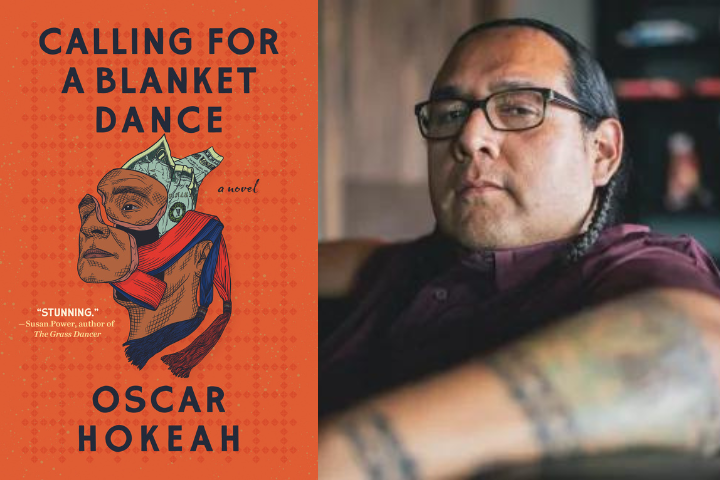In Pleasure and Efficacy, trans activist and scholar Grace Lavery dissects a myriad of different genres in the modern period to talk about what transness means, and what transitioning actually looks like. Through the exploration of philosophical and theoretical works of 19th-century writers, she encourages readers to be weary of mainstream representations of trans people and to be mindful of the complexities and nuances of transness.
In conversation with Saeri Plagmann, PEN America’s Community Outreach Gap Year Fellow, Grace guides us through her scholarly analysis and her experience as a trans writer with refreshing candor and a dash of humor (Amazon, Bookshop).

1. How does it feel to finally have your book out in the world? How have you prepared for its release?
Well, this is my third book, so I feel a little ancient and wizened at this point. At some point in the time since I published my first, four years ago to the month, I realized that I have basically become who I’m going to have been. That’s quite an annoyance. The narcissism of “perfectionism,” which is a kind of withholding, is that if one refuses to write anything, then the work one might have written will have been better than anything anyone else actually wrote. I’m so aware of the many weaknesses of each of the books I’ve written, and of how far they fell short of what I’d hoped for them. But I’m also aware that that feeling really just indicates that I did my job: framed a question, did the research, figured out the answer. The problem is that unanswered questions can titillate and thrill in a way that answers never––or very very rarely––do.
2. You draw a lot from the work of 19th-century writers to show how foundational they are to anti-trans feminism narratives today– narratives such as what constitutes “realness” in gender and what “works” in transitioning. Why do you think it’s important that contemporary trans activists continue to be in conversation with the narratives of the past?
Not just that, I also think nineteenth century writers are foundational to many of the claims that trans people make about ourselves today too. A strange history appears to have settled into mainstream feminism, that until about a quarter-century ago, men were men and women were women and everyone understood that feminism began with accepting that essential difference. Now, anyone who has any knowledge of the history of feminism knows that’s bunk, that one can count on one hand the feminists who have any faith in biological modes for classifying people––and they’re not the ones anyone quotes or cares about. So there is a story about sexual difference that is becoming popular and is straight-up, in fairly easy-to-demonstrate ways, incorrect. Trans historians like Jules Gill-Peterson and Morgan Page have done more than me to tell the stories of trans people from the past, and I’m not primarily a historian. My work is to try to understand the methods of self-knowing and self-becoming that trans people have used for a century and a half. That we are increasingly called upon to prove the historical existence of trans people is really another marker of the profound anti-intellectualism of the current moment.
“My work is to try to understand the methods of self-knowing and self-becoming that trans people have used for a century and a half. That we are increasingly called upon to prove the historical existence of trans people is really another marker of the profound anti-intellectualism of the current moment.“
3. One of the topics you discuss in your book is trans pragmatism– how physical transitioning and medicalization aren’t always desired options for some. This is an underacknowledged narrative, despite it being central to many people’s experiences. Why do you think that is? How can cultural narratives begin to shift to be more representative and transparent?
My hope for the idea of trans pragmatism is not so much that it diversifies our understanding of the kinds of trans people there are––there will always be more kinds than public representations!––but that it will deepen our understanding of what transition actually consists of. I couldn’t be less interested in the question of who is “allowed” to call themselves trans, or who is “really” trans. Everyone and nobody is trans, I suspect––but it doesn’t matter. What matters to human beings is what “freedom” might consist of in respect of our bodies, and what legal and institutional impediments are placed between us and the practice of such freedoms. The basic legal principle is this: there is absolutely no reason why the state should keep a record of a person’s sex, whether assigned at birth or shaped by the person herself.
4. You scale across a variety of different genres and themes, all from different eras, to dissect the universality of transsexuality. What area of modern culture did you enjoy researching the most?
Interesting question! Something about my training as a scholar of nineteenth-century British literature has prompted me to enjoy working across genres and media: George Eliot, in some ways the book’s center, wrote in every medium available to a polymathic Victorian genius. And if one is going to study, as I have (for some reason), The Silence of the Lambs, one is studying a movie, a TV show, a novel, and a lot else besides––it doesn’t make sense to stick to one medium is one is trying to understanding the cultural figuration of a character like Jame Gumb. I guess I really loved watching Hannibal for work, even if I end up saying almost nothing about it.
5. Your writing style and analysis is very reflective of your profession as an academic. Did you have a specific audience in mind as you wrote the book?
Ha, thank you! (I think.) Pleasure and Efficacy is a scholarly book, written for scholars working in the fields of gender and sexuality studies, media studies, and nineteenth century literary studies. That means jargon. It’s also a book aimed at performing and elaborating a certain kind of freedom, a freedom that comes from the body and through language. That, I hope, does not produce jargon, but something else. The book is doing two different kinds of things, I think, and so doesn’t imagine a specific audience but rather imagines helping to convene a new audience. To try to persuade Eliot scholars that trans feminism matters, and to try to persuade trans feminists that Eliot matters.
“What matters to human beings is what “freedom” might consist of in respect of our bodies, and what legal and institutional impediments are placed between us and the practice of such freedoms.”
6. What kind of obstacles did you face in your writing process? How was it different or similar compared to your last book, which was a memoir?

I mean, the biggest obstacle in both cases was fairly obvious: the threats of rape and violence that have become part and parcel of my daily life as I have been working on these topics. People have sent stolen images of me having sex to my boss and to my mother. I’ve been told that white nationalists have paid money for my personal information; my address has been posted on a right-wing hate site. A famous writer made a bunch of very public insinuations that I was a child abuser. These are reprehensible tactics, of course, and they truly hurt––they are supposed to wound, and they do. Sadly for the people doing such things, and for me too I suppose, I don’t know that they really motivate me to do much other than keep on going. I really would like to do less than I do, and being off Twitter has helped immensely.
7. I feel that we are seeing a lot more trans authors and writers making their debut. Are there any writers you take inspiration from today? What about when you first started out as an author?
Oh, absolutely! Trans studies, as a field, is led by scholars junior to me. One of the great things about Susan Stryker, whom I’m proud to call a friend and a mentor, is that she has put a lot of effort into building institutional structures for trans studies that would outlast her own remarkable presence in the field. So many trans writers of the moment are important to me, across genre and institutional location: Jackie Ess, Jules Gill-Peterson, Xine Yao, Eva Hayward, Torrey Peters.
8. You’ve published two books in the last two years. What’s next for you? Do you already have ideas for your next writing project, or would you like to go in a different direction?
It’s worse than you think: I already have my next book, on sitcoms and heterosexuality, in publication. It’ll be out in January. Other than that, I’ve been experimenting with fiction recently. I drafted a novel last year, a historical novel about the Cornish independence movement, spliced with a speculative fiction about a President Lana Del Rey enacting liberal reform of the U. S. Supreme Court. This summer I’ve been kicking around some ideas that have to do with eco-horror. There’s an autofiction kicking around somewhere. I really do write too much.
“There will be times when you and your agent/editor/reader/friend disagree about the merit of a given scene/sentence/idea/etc. Have the conversation. Don’t defend your idea until you’ve really heard the other side, and don’t fold until you’re really convinced.”
9. What advice would you give to a writer who is trying to publish a book in this current climate?
There’s a lot, and I’ve written about this elsewhere, so let me just add this: if you’re lucky, there will be times when you and your agent/editor/reader/friend disagree about the merit of a given scene/sentence/idea/etc. Have the conversation. Don’t defend your idea until you’ve really heard the other side, and don’t fold until you’re really convinced.
10. As an academic, you also spend a great deal of time immersed in/writing critical and theoretical essays. What books outside of the theoretical and philosophical genres do you enjoy reading? Anything that might surprise readers?
I wonder if anyone would be surprised by any of the trash I read. Last year I got really into Robert Pennington’s 1973 book Stannary Law: A History of the Mining Law in Cornwall and Devon, which surprised some people. Would anyone be surprised to hear that I read a lot of comic books? Grant Morrison > Alan Moore, which is an opinion to which I subscribe wholeheartedly, but that would immediately cause me to lose respect if held by another person.
Grace E. Lavery is a writer and academic who lives in New York. Her book Quaint, Exquisite: Victorian Aesthetics and the Idea of Japan (Princeton) won the NAVSA Best Book of the Year prize from the North American Victorian Studies Association. A noted scholar and prominent trans activist, she is the author of the transition memoir Please Miss.




